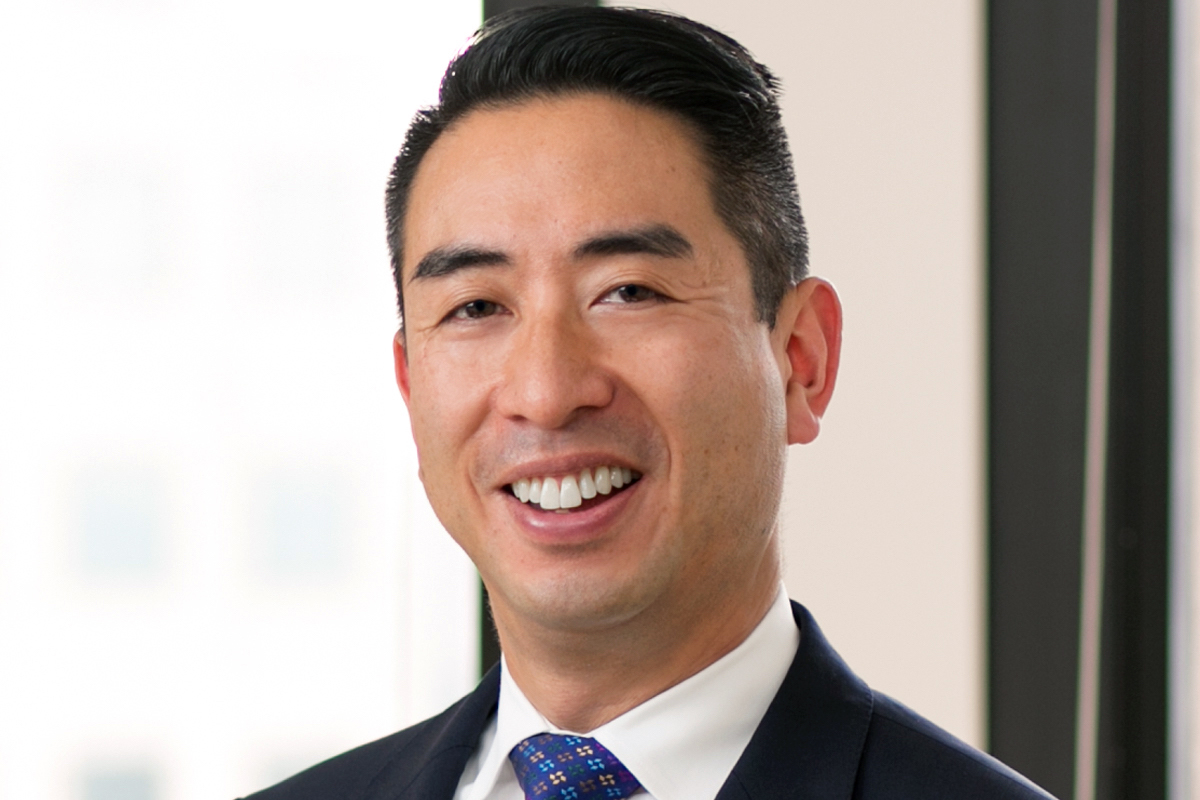David Tsai

In fall 2008, David Tsai ’93 held a sign on a San Francisco street and, despite nasty comments directed his way, urged passers-by to vote against Proposition 8, a California ballot measure opposing same-sex marriage. Tsai, who is Asian-American and gay, later worked a get-out-the-vote phone bank and was hung up on repeatedly. “I thought, ‘We might lose this,’ ” he says. He was right. The measure passed. “Many people thought that wouldn’t happen,” he says. The battle over Proposition 8 was just one skirmish in a larger fight for Tsai: to protect the civil rights of marginalized Americans and immigrants.
Tsai, an intellectual property lawyer who has represented such business giants as Hulu, Amazon and Twitter, as well as many Asian companies, is a partner at Vinson & Elkins LLP in San Francisco and manages the firm’s Taiwan practice. Patent law is his avocation but civil rights and immigration law are his passions. Considered a pro bono expert by his peers — he’s won every immigration pro bono case he’s undertaken — he works on behalf of minorities, including LGBT individuals, people living with HIV, and Asian-Americans. In 2016, he was recognized by the California State Assembly and Senate for his civil rights work on behalf of Asian Pacific Islander immigration clients and support of API and LGBT youth. “Giving back is so important,” Tsai says. “I’m committed to helping my community. That’s what my clients expect and what helps motivate me every day.”
The son of Taiwanese-Americans, Tsai lived in Michigan and Maryland before coming to Exeter. He credits the school for making him thoughtful and teaching him leadership. More important, after taking a class with English Instructor Christine Robinson, he embraced his sexual orientation. “She changed my life by assigning us literature to read about LGBT people,” Tsai says. “That’s when I realized, ‘This is me.’ ”
Science was Tsai’s early passion. He earned a bachelor’s degree in biochemistry from Harvard and a master’s degree in biology from Stanford. “I loved teaching and I was set to pursue a Ph.D., but I got distracted by the dot-com boom,” he says. He took a leave of absence from his lab job (“My professor at Stanford told me I’d be back,” Tsai says) and got a job with a small startup. He never did return to the lab. Although successful in the startup arena, he had other plans. “My parents wanted me to go back to school and give back to the community in some way,” he says.
During the process of coming out to friends and family, Tsai decided to go to law school. “It was so difficult being gay and a minority that I wanted to see what I could do for minority rights,” he says. Intending to study civil rights law at Santa Clara University, Tsai met the country’s top intellectual property professor, Donald Chisum, who, because of Tsai’s startup and technology experience, encouraged him to study patent law.
Tsai now combines his personal and professional passions. As an intellectual property attorney, he represents numerous Taiwanese and Chinese companies (he’s fluent in spoken Taiwanese and Mandarin Chinese) and is active in California’s legal community. He’s won numerous awards for his pro bono work, which includes filing an amicus brief on behalf of Bay Area Lawyers for Individual Freedom and dozens of other organizations in the federal court case that reversed Proposition 8. The president-elect of the Asian American Bar Association of the Greater Bay Area as well as a national board member of Lambda Legal, an organization that supports the rights of lesbians, gay men and people with HIV/AIDS, Tsai also mentors minority students. “My priority is helping children and the next generation feel comfortable and authentic about who they are, so they can be safe in whatever community they choose to live in,” he says.
—Debbie Kane
Editor’s note: This profile originally appeared in the spring 2017 issue of The Exeter Bulletin.


